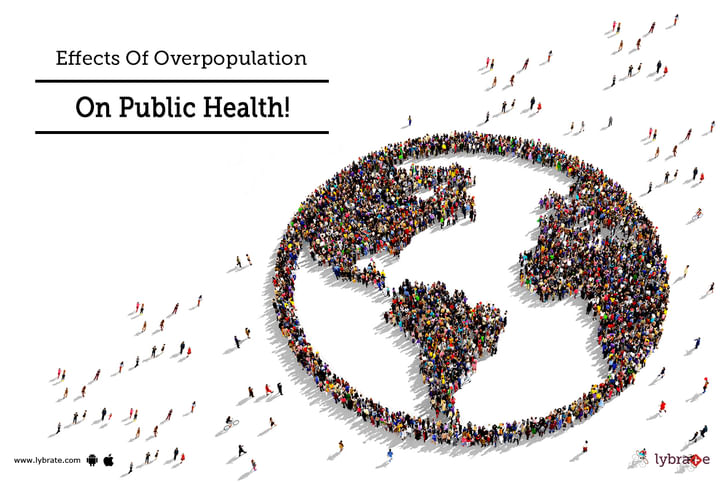Effects Of Overpopulation On Public Health!
The global population is growing exponentially at an alarming rate. Currently, India records a population of 1.35 billion and the numbers are expected to go up by the year 2050, making it the most populated country in the world. While many people are aware of the environmental and social problems of population growth, it is rarely seen as a public health issue.
As far as public health is concerned, overpopulation contributes to the inability of the government to expand and improve healthcare facilities for treatment and prevention of other diseases, such as malaria, AIDS/HIV etc.
How does overpopulation pose a threat to your overall health?
The denser the population growth, easier it is for infections to spread. Overpopulation leads to environmental changes and urban crowding, which in turn, results in the emergence and transmission of several infectious diseases. The rise in antimicrobial resistance may prove to be an unforeseen problem for diseases, like –
-
Malaria
While cholera is practically extinct in the developing world and tuberculosis is confined to some parts of the world, dengue and malaria continue to be a major cause of high mortality and morbidity among people across the globe.
Population growth results in poor or polluted water supply and simply filtering drinking water may not be the solution to the problem. The viruses pass on at a faster rate in places where population density is high, thus enabling deadly mutations to continue and making water resources unsafe for consumption and utilization.
An estimated 2 billion people across the globe fall sick every year by drinking contaminated water. This may lead to the spread of water-borne diseases, such as typhoid, dysentery, cholera, polio, and diarrhoea. Contaminated drinking water causes approximately 4,85,000 diarrhoeal deaths each year.
Overpopulation also contributes to excessive air pollution, which again, is at the root of several respiratory conditions. With more and more people availing various means of public transportation, there is a growing concern about the health impacts caused due to the pollution and traffic on the roads. Children and elderly are the ones most likely to bear the brunt of the toxic air contents. Currently, decreased air quality is a major reason why the majority of India’s population is suffering from respiratory health issues, such as –
-
Chronic bronchitis
-
Chronic Obstructive Pulmonary Disease
-
Pleural effusion
The growing population density in slums may ease the spread of sexually transmitted diseases, like HIV/AIDS, Chlamydia, gonorrhoea, HPV etc. The majority of people living in such areas do not have the resources or access to proper healthcare facilities, safe contraceptives etc. Furthermore, urban migration also increases a person’s vulnerability to STDs.
What needs to be done?
Overpopulation is a global problem and undoubtedly the root of many public health problems, which must not be overlooked. Addressing the issue and taking adequate measures to solve it is the need of the hour. All the governments, along with various health organizations and NGOs should work to raise awareness among people about the problems of overpopulation, as well as the importance of family planning, education, birth control measures etc. through various campaigns – the World Population Day held every year on July 11, aims to meet these objectives.
Hospitals and healthcare centres must scale up medical facilities with the help of government and private organizations. Public awareness and birth control measures together may help end the vicious cycle of overpopulation and increased health risks.



+1.svg)
